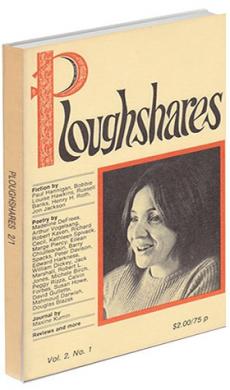rev. of In Witness by Robert B. Shaw
Those who follow the work of Robert B. Shaw are a patient lot, who wait with smoldering enthusiasm for something doled out like Maundy money, or water in the desert. Their patience is rewarded by poems of curiously persistent substance, so dense and well worked that they glow like the better sort of antique furniture; poems memorable and intricate, taut with skeptical wit and startling comparison. They have consistently rewarded the effort of finding them in magazines.
Shaw's first collection,
In Witness, would be notable simply for presenting us with good elusive poems secured at last between covers. But like many of its poems,
In Witness delivers more than it promises, by providing a selection of verse sufficiently various to invite comparison and study. Till now, the scarcity of Shaw's work has led the reader to consider each of his poems as an isolated phenomenon valued for its internal richness and craftsmanship;
In Witness, by drawing together fifteen of his best poems, gives us a sense of the deep intelligence which guides him and the concerns which impel him.
Most prominently, the book affirms the intensity and clarity with which Shaw perceives common experience, qualities which enable him to engage his reader's attention with a skill typified by this first stanza of "From Ashes":
Sometimes a man comes home to find his house
burnt to the floor and no fire left to fight.
Stray sparks glint between splinters of glass.
No one is home and no home stands and it is a cold night.
Three of Shaw's consistent virtues are potently apparent here. The first is the austere strength and good order of the perceived reality, which in this case help us to believe, not only in the ruined houses, but also — and more subtly — in the man who sees it. The second is the genuine economy of language, which substantiates Pound's claim that to write poetry is to condense. The third and most striking is the speed with which the poem's context is established, which plunges the reader into the shocking surreality experienced by the central figure. There is no diffusing-screen of technique gradually drawn away to introduce the reader to the substance of the poem; an unrestrained perception is evident from the poem's first line, and gains force thereafter through refinement of detail:
. . . . the black hulks of his beams
leaning unevenly over his late concerns –
the ashy pulp of papers and books whose names
are hard now to remember. Now he learns
to notice the basic, charred bones of the house,
bent pipes, fused wires, a battered sink –
boring necessities made precious by loss.
But the tragedy of this subject gives a clue to the nature of Shaw's concerns.
In Witness helps us to understand that, just as Shaw cannot use technique to screen reality, he cannot rest by drawing back from the intensity of his vision. Daily phenomena, too long and too deeply perceived, engender a daily fear which adds to the effort of living. In the last stanza of "Trying to Sleep in the Summer,"
on-coming headlights shatter the pane,
a jungle of shadows
thrashes over the ceiling.
Thus a circumstance so fear-struck that mere light can break windows. The particular acuteness here is surrounded by other fears, more mundane, but also more rationally fearful ("a bottle, a brick, a car/antenna, all can double as weapons"), and the narrator wishes that a commoner man's dreams would supplant his own wakefulness:
. . . . America Sweats,
menaced in flickering, black-and-white
dreams by the Mad Barber.I wish I could slip into even that
stratum of unconsciousness,
these nights I sweat through awake.
Shaw is also concerned with painful circumstances that are less acute but more durable. "Alive in Buenos Aires" is the cynical soliloquy of a former Hitlerite, living in Argentine under a false name, who realizes that his fate is sharp but just. In "3 A.M., January 1," the narrator admits that although his marriage is "a pack of scenes narrowly avoided," still he values it as his only refuge from the "outside . . . colder than ever." "An Old Route" begins with a birthday party and ends with its subject alone on a mountain peak, contemplating the "axiom" of loneliness; like "3 A.M., January 1," which begins amid the tag end of New Year's Eve, it is a journey from the temporary joy of conviviality to the lasting agony of the self.
It must be noted, however, that these statements do Shaw an injustice by making no allowance for the pungent wit which is one of his most enlightened qualities. Two good examples are "AEsop in Our Time," which uses the models of fable to harass modern pretensions with superb light irony, and "Skimming a Surface," a showpiece made into a masterpiece by the stunning cooperation of dry, genuine humor and formal skill.
Necessarily,
In Witness is not flawless. Although clearly these poems were rigorously selected, still poetry so deeply felt must occasionally be uneven, and the pieces here that fall below standard are given no mercy by their excellent neighbors. Sometimes Shaw's humor is the product of a grand intelligence toying with a petty subject; sometimes his material is drawn so fine that the tone seems precious and the tension brittle, as in "Getting On." Still, the proportion of good work here is uncommonly high, and the book so rich that the brief table of contents comes as a shock.
In Witness is probably one of the most worthwhile books of poetry to be published in recent years. Admirers of Shaw's work will seek it gladly, but it will be as well received by those who make his acquainance through it. It is an honest representation of an important poet.

